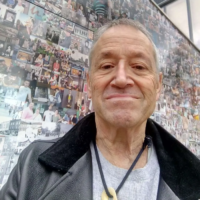
Labour Leadership Contest: How do they view the Climate Crisis?
As the Labour Leadership hustings get underway, journalist Manon Dark looks at where the five candidates stand on the issue of climate change and how they are looking to tackle the matter.
The clock is ticking on the race to try and regenerate the Labour Party after their disastrous loss in December's general election. With the five candidates positioning themselves on how they will rebuild the party, let's see what their agenda is when it comes to restructuring the country to tackle the climate crisis?
Sir Keir Starmer
As the shadow Brexit secretary and former human rights lawyer, Sir Keir attacked the decision made by counter-terrorism police placing Extinction Rebellion on a list of extremist groups.
He said it was "completely wrong and counterproductive" to describe the climate activist group as an 'extreme ideology'.
In 2016, Sir Keir vowed to fight for an environmentally friendly Brexit by demanding that all existing EU green Laws be put into a new Act of Parliament. He claimed this would make it harder for future governments to weaken policies that safeguard our environment.
"We should make the case for a more progressive, more ambitious domestic environmental policy too. Not to match EU standards but to go beyond them," Sir Keir added.
In response to the general election result, Sir Keir told LabourList the hope that brought thousands of climate protesters to march is the type of hope that binds the movement together.
Emily Thornberry
As the current shadow foreign secretary, Thornberry's stance on green policies focuses mainly around the phrase "we can't solve the climate crisis on our own".
She has used the Australian wildfires as an example of why Britain has to lead the world to take action on climate change, calling for greater use of renewables to achieve a zero-carbon future.
In 2010 Thornberry was appointed Shadow Minister for the Department of Energy and Climate Change under Ed Miliband and was part of the party's delegation at the 2009 UN Climate Change Conference in Copenhagen.
"I've believed since long before then – and even more now, as we near the point of no return – that it's the most important issue for anyone who wants to lead a country," Thornberry said to LabourList.
She added that the UK needs to be a world leader on fighting climate change just as the country led the world in the first industrial revolution, calling this the 'globalisation of the green new deal'.
Rebecca Long-Bailey
As part of Corbyn's frontbench team, Long-Bailey contributed to the formulation of Labour's manifesto in the run-up to the 2019 general election. She helped create the party's so-called 'green industrial revolution' to transform the economic futures of UK communities.
This green new deal aimed to create sustainable jobs, install solar panels on nearly 2m homes, improve the country's public transport, achieve zero-carbon by 2030 and create a new Clean Air Act.
In terms of supporting radical plans to tackle climate change and placing this at the heart of their pitch, Long-Bailey's recent track record seems to be quite eco-positive. She even claims that Labour's green policies were undersold in the run-up to the general election.
In the Leadership Hustings in Liverpool, Long-Bailey mentioned her past experiences about how she'd been affected by deindustrialisation. She said: "I know how much pride in our industries and our communities is to many of the people that I represent, and I'll fight for their future on this basis."
Jess Phillips
Although Phillips has criticised Labour's manifesto, she agrees with the implementation of the 'green industrial revolution'. She believes the changes that are made to tackle the climate crisis shouldn't leave people economically unviable and the way to do this is through investment.
Philips attended the climate school strike in Birmingham last year and emphasised the importance of being able to turn the crisis into a genuine opportunity.
In response to the Australian wildfires, Phillips said everybody across the world has got to tackle the crisis and start living our lives in a way that cares for our world in the future.
"As a mother with two sons, both with inhalers – this is our children's lungs, this is our children's lives," she said.
Lisa Nandy
Nandy described her role as the former Shadow Secretary for Energy and Climate Change as "one of the privileges of [her] life."
She believes that to best tackle the climate crisis, the party should not divide people. "The people in Wigan care just as much about tackling climate change as people do in any other part of the country."
Similar to Jess Phillips, she also wants to drive investment to bring green new jobs which are economically sustainable for UK communities.
Nandy's approach to the climate crisis, however, takes a more pragmatic avenue as she believes climate action needs to be rooted in people's everyday lives.
"Telling people to get out of their cars is counterproductive in parts of the country where decades of chronic underinvestment have left us without public transport," Nandy explained that to succeed there needs to be a broad coalition in towns, cities and across the class divide.
All five candidates agree the environmental crisis needs to be tackled urgently. But with the climate summit COP 26 taking place in the UK this year, the new Labour leader has the opportunity to really pressure Boris Johnson's government with a clear Green plan.
Leading up to the 2019 General Election Manon Dark created a package on whether or not we saw not just a Brexit Election but also a Climate Election – speaking to various activists, candidates, commentators and experts about the issue.















